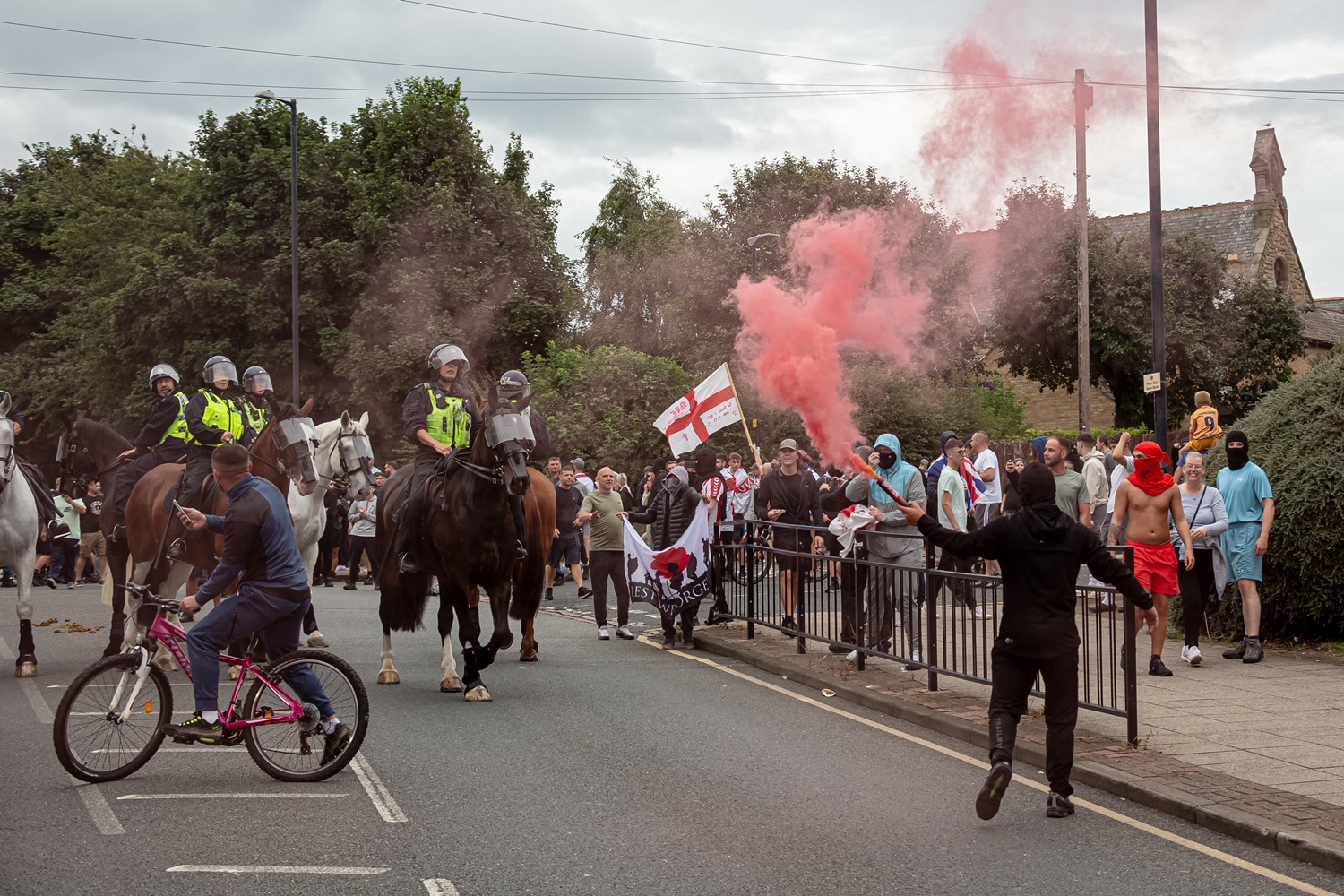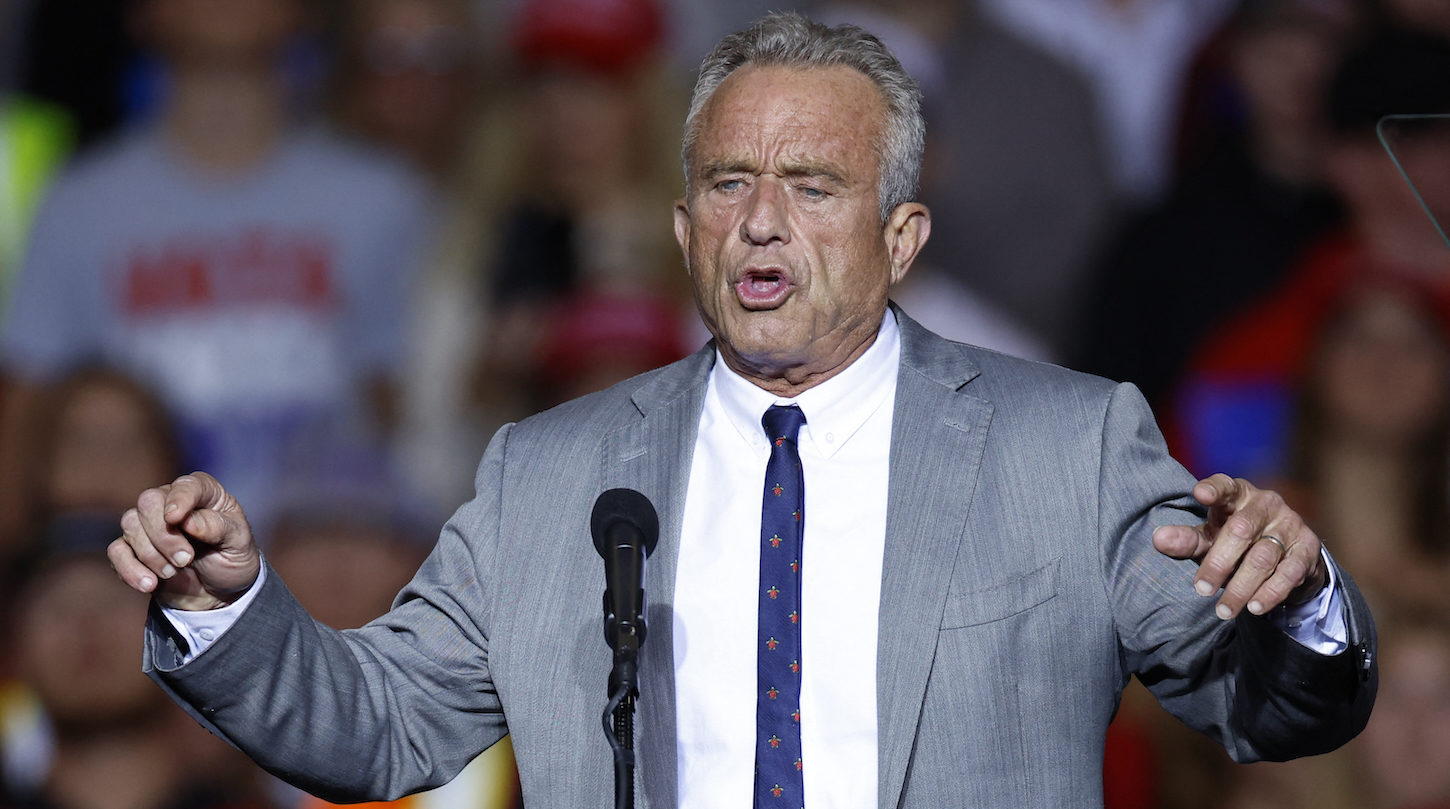The other day, I was riding a bus through one of the more depressed parts of the northern English urban aggregation where I live, on my way to an Anglo Saxon-themed farm park adjacent to a historically important former monastery. In the 8th century, this was one of Europe’s most vital centers of learning; now, it’s next to a bus stop called “High Street” on a mostly derelict industrial estate, adjacent to a town where the only shop I could see open from the bus was a place called Expresso Slots (it was filled with slot machines, although thinking about the name, they maybe also did coffee).
For a long time now—at least since the Tories rose to power in 2010—we have had a government fundamentally hostile to life as it was once carried on in these places, a government that has systematically disinvested from communities like this and basically allowed them to die. In 2019, a UN report on the economic damage caused by the Tories’ economic austerity programme noted that life expectancy in the north of England had fallen at the sort of rate one would normally expect to observe on the losing side of a civil war, and that was before Brexit and the pandemic. A brief enthusiasm for “levelling up” the North turned out to be little more than a gimmicky way of doling out money to places that had voted Tory, and anyway were likely to be richer. Britain is bleak, and it’s only likely to get worse. It was a relief in July when we finally voted the Tories out, but the Labour government that has replaced them already seems determined to carry on the austerity.
Given all this, it seems remarkable that anyone would still want to come to the U.K. to start a new life at all—to work, to study, to raise children. This is something that I’ve often found myself asking people who aren’t originally from here, especially if they’re from Europe and will have had to put up with Brexit: Why? I kind of like it here, but this is really because the U.K. is crap in a familiar way, one that I understand. We have European-style taxes and American-style public services; salaries have largely stagnated, and the cost of living keeps rising. People famously do not come here for the weather. (The only genuinely satisfying answer I have been given to this question comes from an American former colleague, who told me that he was motivated to apply for academic jobs in the U.K. because at least here he wasn’t worried about his students shooting up the class.) But we need people to keep wanting to come here: The higher-education sector is almost completely financially reliant on foreign students, while almost all the economic growth the country has experienced since 2010 has been driven by immigration.
But maybe the systematic encrappening of the country is the point. Despite all the many advantages immigration brings—not just economic strength but also a serviceable cuisine—the British political mainstream has long been united on two points: 1) there are too many immigrants, and 2) in particular, there are too many Muslims. Different sides of the political spectrum will express this point in different ways: Reform UK Leader Nigel Farage might state them openly, while a Labour politician might talk about the need to “manage immigration” and “encourage integration.” But in the mainstream of British politics, Enoch Powell’s views have basically become axiomatic: The point of any immigration policy is to limit it, to stop Them from getting in and stop Our (systematically defunded) services from being overwhelmed. The Tories tried implementing what they called the “hostile environment” policy in 2012, aiming to make life so difficult for immigrants that they left of their own accord; a decade later, they spent millions on a doomed and deeply illegal scheme that promised to discourage asylum claimants by deporting them to Rwanda.
But the more mainstream politicians tell racists in this country that they’re right about everything, the angrier the racists seem to get about it. Of course, it doesn’t help that the media has been gleefully stoking these fires for years. No matter how much of our nose the powers that be might try and cut off to spite our collective face, no destruction or decline seems to go hard enough or fast enough to satisfy the braying Nazi mob. And that’s where the country is now: outbreaks of far-right violence spreading across the country faster than a health secretary rushing to ban treatment for trans teenagers. “The people of Britain” want their country back—presumably so they can set even more of it on fire.
The catalyst for the current violence was a horrific event in the town of Southport, in which a 17-year-old, later named as Axel Rudakubana, walked into a dance studio and stabbed 11 children and two adults, killing three girls. Online rumors convinced people that the killer was an asylum seeker; he was, in fact, born in Cardiff. This led to a local vigil being hijacked by far-right protesters, who set fire to a police vehicle and surrounded a mosque. Despite the rumors being disproved, violence soon spread elsewhere: Across the weekend, riots broke out in Sunderland, Belfast, Middlesbrough, and Liverpool, while in Rotherham and Tamworth mobs surrounded hotels thought to be housing asylum seekers and set them on fire. This is something that can only really be called a pogrom.

The violence is all terrifying enough already, but what I find particularly frightening is that I can’t imagine where this is going to end. I feel deeply concerned for my own community, which is made livable in large part because of the vibrant and friendly Kurdish community that also makes it their home. Politicians have “condemned” the violence, and there is talk of stepping up the policing, of fast-tracking the sentencing, of making an example of the protesters. Some have suggested sending in the army. But these condemnations have felt, at best, mealy-mouthed. All the mainstream British politicians can do in relation to these riots is condemn how the rioters are expressing their views. They have long since given up trying to challenge people like this, saying they are wrong about immigration or Islam. For years the axiomatic Powellism of the British establishment has assumed that if immigration is not kept to a low level, there will simply and naturally be riots. From this perspective, the blame for the riots is not on the Nazis, but on the left-wing politicians who haven’t done enough to succor them. Even if the violence is eventually contained, life in this country will only get harder for immigrants from here, and the political establishment will surely find a way to give the far-right more of what they want.
The actual solution is a politician willing to voice perhaps the greatest taboo in British political life: that immigration is a good thing, and that it should be celebrated. That it makes us better; it is good for our children to attend schools with people who speak other languages at home; we can all learn, and become more interesting and better people by being neighbors with people who grew up in other parts of the world. That Islam is part of the fabric of modern Britain. This politician would declare their commitment to an immigration policy with a goal to attract more immigrants, to help people to come and make their lives here, to bring life back to our dying, neglected places.
Either that, or we just give in to this country's cruelest instincts, letting the government slash and cut while the far-right burns and smashes. There is nothing left to lose but our Expresso Slots.





